
"It's a miracle that some records ever get made. Right in the middle of Ceausescu's ultra-repressive dictatorship, composer Iancu Dumitrescu managed to arrange for his first LP, a compilation of radical new music by Dumitrescu and three...
In Stock
Quantity in Basket: None
Log In to use our Wish List
Shipping Weight: 3.00 units
EU & UK Customers:
Discogs.com can handle your VAT payments
So please order through Discogs
Sample The Album:
Mihai Tanasila-bassoon
George Georgescu-cello
Aurelian-Octav Popa-clarinet
Iancu Dumitrescu-conductor, percussion, piano
tefan Thomasz-double bass
Voicu Vasinca-flute
Costin Petrescu-percussion
Alexander Graur-trombone
Mihai Sofonea-viola
Click an artist name above to see in-stock items for that artist.
UPC: 759624575721
Label: Corbett vs. Dempsey
Catalog ID: CVSD115
Squidco Product Code: 35627
Format: CD
Condition: New
Released: 2025
Country: USA
Packaging: Cardboard Gatefold
Recorded in Bucharest, Romania, in 1980, by Vladimir Plopeanu.
"It's a miracle that some records ever get made. Right in the middle of Ceausescu's ultra-repressive dictatorship, composer Iancu Dumitrescu managed to arrange for his first LP, a compilation of radical new music by Dumitrescu and three of his Romanian colleagues, all older than him: Ocavian Nemescu, Stefan Niculescu, and Corneliu Cezar. Dumitrescu was -- and remains -- one of the most iconoclastic figures in contemporary music. Often referred to as a spectralist (though he distances himself from the approach taken by the French spectralists) and self-described as an adherent of "acousmatic" music (though again he situates himself at a remove from the French electroacoustic composers) and highly influenced by deep studies in phenomenology, Dumitrescu's music often focuses intensely on one sonorous object, penetrating it until it is entirely blown open. He formed Ansamblul Hyperion, a chamber group featuring adventurous young musicians, in 1976. Four years later, against all odds, in a radio studio in Bucharest, they recorded this groundbreaking compilation for Electrecord, the state record company. The program starts with one of Dumitrescu's most important works, the breathtaking, string-centric "Movemur et Sumus" (1978), translated from the Latin as "move and exist." Nemescu's "Combinatii In Cercuri" (1965) was composed for the ensemble together with an electronic component that was added to the piece in 1980. Composed in 1979, Niculescu's "Sincronie" features Dumitrescu himself on piano, as well as conducting, as he does on all the works; written for an indeterminate number of performers between two and twelve (here featuring nine) it utilizes fixed elements in the score together with openly improvised elements, expanding from a core vibraphone part to encompass an almost ecstatic meditation on stasis and motion. Cezar's work "Rota" (1976) combines Romanian, Balkan, and other Eastern melodic resonances with electronics (some of them startlingly video-game-like) and preparations on various instruments, lending an ear to the natural sounds of wind, waves, and seagull calls. This historically charged document, released in 1981 in Romania and available for the most part only there, has never been reissued in any form. Gorgeously remastered from the original tapes, it appears here with its original cover design."-Corbett Vs. Dempsey
Artist Biographies
• Show Bio for Iancu Dumitrescu "Iancu Dumitrescu is one of the leading personalities of contemporary music, embracing both composition and interpretation. He centers his work on the phenomenological principle, which Sergiu Celibidache made him to discover, and which Dumitrescu applies to the composition itself, and on the idea of acousmatics. Acousmatics represents for Dumitrescu not only " the art of disguising a sonic source " in a concrete approach, but the very metaphor of the sound, infinite, cryptical alchemy applied to the sound material. Iancu Dumitrescu has born the 15th of July 1944 in Sibiu, Romania, son of Gheorghe T Dumitrescu (1904-1982), University Professor, philosopher and psychologist, author of numerous volumes, and of Maria Dumitrescu, a Mathematics teacher. Around four, probably in 1949 he witnesses the general search and arresting of his father with tragic consequences for the entire family. Three years of kept into custody without any awareness from the family, until the death of Stalin, with unforgettable consequences. 1950-1963: Elementary school and college. 964-1969. Musical studies at the Musical Academy in Bucharest. It was the first year after WW2 when admittance in high school happened without the censorship of the " political file of the family ". The vigilance however remained complete and its effects increasingly harmful. He later followed, beginning with 1978, systematic studies of conducting and musical phenomenology with Sergiu Celibidache. 1964 Depressing atmosphere, with serious political pressure, harassing, when modern art was denounced and condemned to disappear, as well as those frequenting it. However those young years are full of impetus, of challenge and even some unexpected artistic success. The encounter of few extraordinary colleagues, enthusiastic and talented opened the opportunity of a new and real stimulation. From 1966, for two decades he launches into a fervent musicological and journalistic activity, trying, under difficult conditions, to engage his writing through the construction of an axiological, selective dimension of the Romanian musical culture of that time. He writes permanent editorials for important cultural magazines and newspapers such as "Luceafarul", "România Literara", than Radio broadcastings, articles in "Scânteia tineretului", "România libera", "Saptamâna Culturala" etc. In 1967 he is awarded with the Prize for journalism of the LUCEAFARUL magazine for his " originality and sharpness ". In the same dreadful period, by its harsh ideological limitations, its dogmatism and sclerosis the musicological interventions of Dumitrescu quickly attracted the attention of officials who were preparing to attack. But it was necessary to reject to any risk the cultural repression. Firstly by drawing attention to other aesthetic attitudes, other names, and the marginalized ones - against those became the taboos, the untouchables "skills" of the time. It was necessary to propose another professional ethics, a new elite, imposing a new generation of composers. Thus, disarticulating one week after another the Establishment of the time, he became the official choice of the attacks, controversies, and charges in the official press, but could not be silenced. The activity as a musicologist, composer and performer (conductor) intersects from the very beginning. Febrile period 1964-1970: the young student is attracted and finds himself in the avant-garde movements. He desperately looks for scores, recordings, unpublished, innovative ideas: Stravinsky, Bartok, Webern, Schoenberg, Berg, Stockhausen, Boulez, Berio, Nono, Cage, Lutoslawski, Penderecki ... Frenetic Revelation of the modernity. The avant-garde. The atonalism, dodecaphony, Stochastics, the Aleatorism. First systematic explorations in composition. The unique role of Professor A. Mendelssohn, who during an important meeting expressed as " from all his students having made progress, only for Iancu Dumitrescu composition represents the very life! " 1967 to 1969. As still a student, he realizes his first original compositions invested with an opus number thereafter: Diachronies "(I-II-III-IV) for piano, published in 1970 by" Gerig Musikverlage " recorded by WDR-Köln, Radio Madrid, Radio Brussels etc.). "Metamorphoses" for solo clarinet and 'Alternances (I-II) "string quartet, works later recorded by Radio România and Radio France. First discoveries of the sound core, the natural harmonics, the microscopic approach of the sound world etc. The idea of acousmatic. The Spectralism - ideas that will remains central in his composition since. First presence of his works at Radio France - Grand Auditorium. World Premiere of "Multiple" for three percussion groups. The work was engraved little after for CBS Harmonia Mundi. 1974 to 1976. Dumitrescu configures the Hyperion Ensemble, an artistic group of performers and composers who will occupy for 40 years, one of the most important and dynamic role in Romanian music 1978 - He received a Scholarship from Sergiu Celibidache in Germany, after examinations, repeated interviews and extensive theoretical discussions with the Master. Since June 1978, systematic studies of general and musical phenomenology, and also conducting at the University of Trier and Munich. Sergiu Celibidache became for him the Master has always sought, to whom he always relates. He since joined the Husserlian Phenomenology - perspective that has led to important theoretical crystallization and to fertile creative conclusions, re-placing in question the principles of academic composition, petrified and deprived - as we can easily see - of any genuine creative impulse. After extensive explorations, he finally foresees his own vision on sonic world he has pursued since. Thus, the essential concepts of "phenomenological reduction" and "pure intuition" became functional in composition. According to Dumitrescu, it is the first time phenomenology is utilized as a true method of composition, which re-poses in question essential concepts, nevertheless hidden at that time: inspiration, vision, creativity, imagination. 1991 - Inauguration of the EDITION MODERN CD Label in collaboration with "RER Megacorp" - London. Until 2011 26 CDs with the music of Iancu Dumitrescu and Ana-Maria AVRAM were released, and distributed in United States, Canada, France, Germany, United Kingdom, Italy, Austria, Japan, Brazil, South Africa, Korea.. . Iancu Dumitrescu is considered one of the leaders of the spectral music trend at a worldwide level. In 1976 he founded the HYPERION Ensemble, proposing a new aesthetic in today's music, hyper-spectral, based on the radiant power of sound, within its microcosmic complexity - which is questioned, analyzed, re-composed from a spectral perspective. Dumitrescu is also Founder and Artistic Director of the International Music Festivals of Computer Assisted Music Acousmania, Musica Nova, Musica Viva and the International Spectral Music Festival SPECTRUM XXI - held annually in three European capitals. His creation counts more than 200 works, chamber music, electro acoustic, orchestral music, computer music, etc. His work is edited by Salabert (Paris), Editura Musicala (Bucharest) Gerig Musikverlage-Schott-Schöne (Köln). The LPs and Cds of his music are published by Edition RZ (Berlin) Generation Unlimited (United States), Escargot-Harmonia Mundi (France), Electrecord (Bucharest), Artgallery (Paris), ReR Megacorp (London), Bananafish (Los Angeles) Edition Modern (London-Bucharest). The musicological contributions of Iancu Dumitrescu have concretized in numerous articles such as "Structure & Freedom" (London, Resonance magazine), "Writing: Iancu Dumitrescu" in "Revue et Corrgiée " , Grenoble, "Iancu Dumitrescu: On The Inside Looking In" (Bananafish, Los Angeles ) "In the land of ninth sky : Iancu Dumitrescu Ana-Maria Avram" (Musicworks, Toronto) and in the book "Iancu Dumitrescu, Acousmatic Provoker" (ReR Megacorp, London)." ^ Hide Bio for Iancu Dumitrescu
2/19/2025
Have a better biography or biography source? Please Contact Us so that we can update this biography.
Track Listing:
1. Movemur Et Sumus (II + V) 13:35
2. Combinatii In Cercuri 11:53
3. Sincronie 9:10
4. Rota 12:31
In Stock, Not Yet Cataloged
Compositional Forms
Avant-Garde
European Improvisation, Composition and Experimental Forms
Large Ensembles
Search for other titles on the label:
Corbett vs. Dempsey.


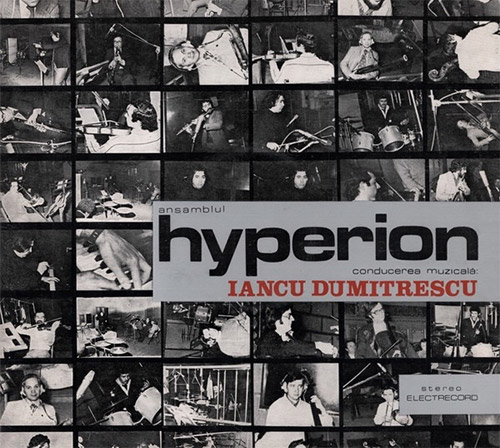

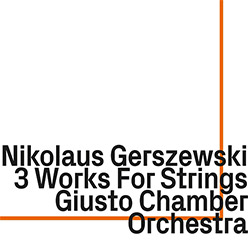


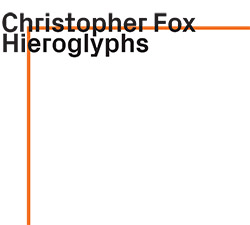
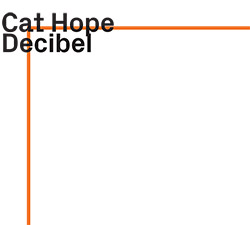
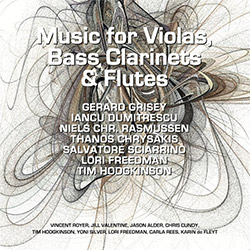


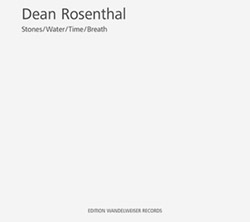
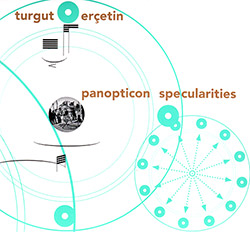



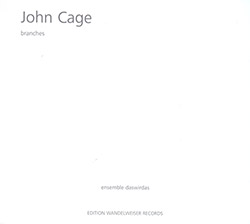


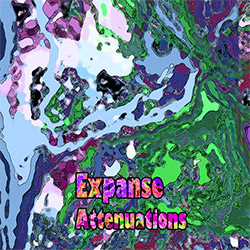

![dustsceawung: dustsceawung [CASSETTE w/ Download]](https://www.teuthida.com/productImages/misc4/35753.jpg)

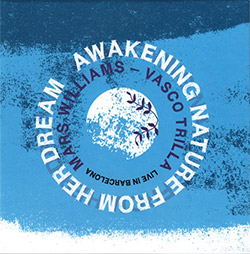

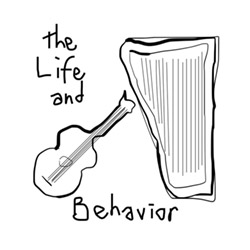

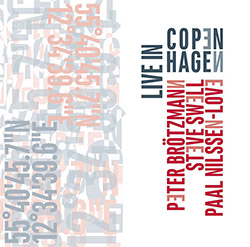
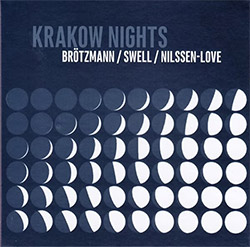

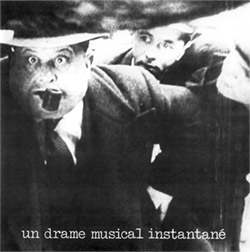


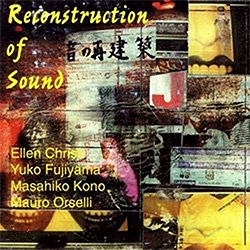



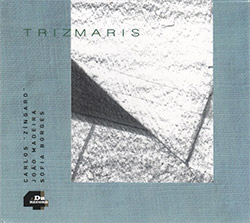
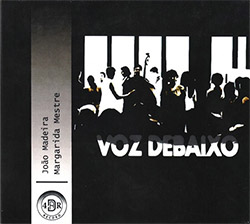

![Zorn, John / JACK Quartet: The Complete String Quartets [2 CDs]](https://www.teuthida.com/productImages/misc4/35609.jpg)

![Halls of the Machine: Atmospheres For Lovers And Sleepers [CASSETTE w/ DOWNLOAD]](https://www.teuthida.com/productImages/misc4/35806.jpg)

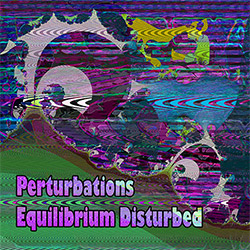
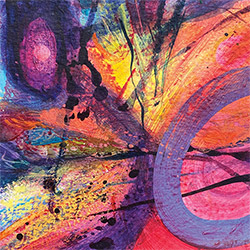


![TOC / Paulina Owczarek: Psychedelic Jelly [VINYL]](https://www.teuthida.com/productImages/misc4/35775.jpg)
![Kesherul Neg Pineg: The Book Of Pig [VINYL]](https://www.teuthida.com/productImages/misc4/35776.jpg)


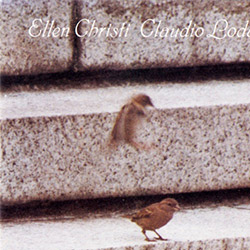
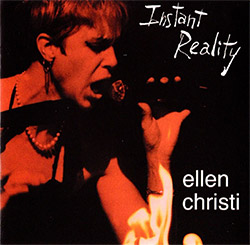
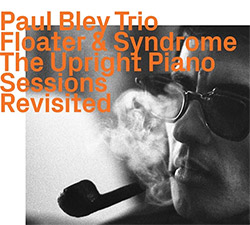
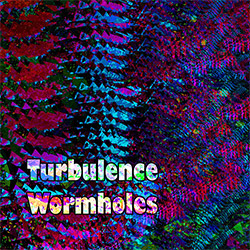
![Lacy, Steve Three : Live Lugano 1984 - First Visit [CD + 2 POSTCARDS]](https://www.teuthida.com/productImages/misc4/35624.jpg)



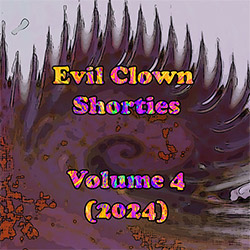
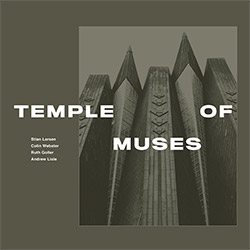



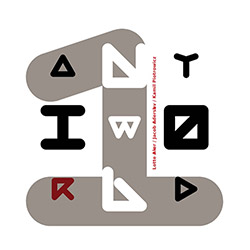
![Tusques, Francois / Sunny Murray 38: Intercommunal Dialogue 1&2 [2LPS w/ DOWNLOAD]](https://www.teuthida.com/productImages/misc4/35475.jpg)
![Birge, Jean-Jacques: Pique-nique Au Labo [2 CDs]](https://www.teuthida.com/productImages/misc4/35596.jpg)



![AHC (Alexander Cooper): Lase [2 CDs]](https://www.teuthida.com/productImages/misc4/35754.jpg)



![Fagaschinski, Kai / Yan Jun : Graveyard Processions [VINYL w/ DOWNLOAD]](https://www.teuthida.com/productImages/misc4/35474.jpg)
![Brant, Cody / Carl Kruger: Smoke Detail [CASSETTE w/ DOWNLOAD]](https://www.teuthida.com/productImages/misc4/35551.jpg)
![Weirs and Magic Tuber Stringband : The Crozet Tunnel [CASSETTE + DOWNLOAD]](https://www.teuthida.com/productImages/misc4/35570.jpg)
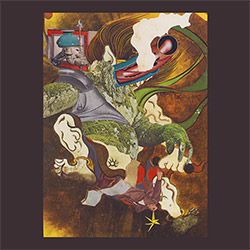
![Abcess Grenk: Erguss Von Licht [CASSETTE w/ DOWNLOAD]](https://www.teuthida.com/productImages/misc4/35560.jpg)

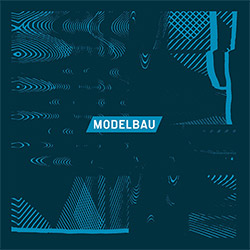
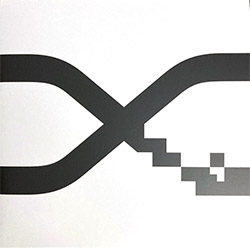
![Alva Noto: Xerrox Vol. 5 [VINYL 2 LPs]](https://www.teuthida.com/productImages/misc4/35359.jpg)
![Weston, Matt: Communism Has Appeared On The Scene [VINYL 2 LPs]](https://www.teuthida.com/productImages/misc4/35546.jpg)

![Jeck, Philip: rpm [2 CDs]](https://www.teuthida.com/productImages/misc4/35455.jpg)






![Lonsdale, Eden: Dawnings [2 CDs]](https://www.teuthida.com/productImages/misc4/35480.jpg)







![Sanna, Claudio: Compositori Sardi Contemporanei II [2 CDs]](https://www.teuthida.com/productImages/misc4/35317.jpg)







![Zurria, Manuel: Fame di Vento [3 CDs]](https://www.teuthida.com/productImages/misc4/35167.jpg)

![Granberg, Magnus / Nattens Inbrott / Skogen: Holde Traume, Kehret Wieder! [2 CDs]](https://www.teuthida.com/productImages/misc4/35038.jpg)
![Frey, Jurg: Outermost Melodie [2 CDs]](https://www.teuthida.com/productImages/misc4/35039.jpg)

![Pavone, Jessica: Reverse Bloom [VINYL]](https://www.teuthida.com/productImages/misc4/34895.jpg)




![Modney (Modney / Wooley / Gentile / Roberts / Pluta / Symthe / ...): Ascending Primes [2 CDs]](https://www.teuthida.com/productImages/misc4/34852.jpg)





![Elephant9 : Mythical River [VINYL]](https://www.teuthida.com/productImages/misc4/34624.jpg)



![Elephant9 with Terje Rypdal: Catching Fire [VINYL 2 LPs]](https://www.teuthida.com/productImages/misc4/35355.jpg)
![Deerlady (Obomsawin, Mali / Magdalena Abrego): Greatest Hits [VINYL]](https://www.teuthida.com/productImages/misc4/34876.jpg)




![Haino, Keiji: Black Blues [2 CDs]](https://www.teuthida.com/productImages/misc4/35109.jpg)



![Surplus 1980: Illusion of Consistency [CD]](https://www.teuthida.com/productImages/misc4/35069.jpg)
![Staiano, Moe: Away Towards the Light [VINYL + DOWNLOAD]](https://www.teuthida.com/productImages/misc4/35037.jpg)



![Caveira (Gomes / Sousa / Abras / Ferrandini): Ficar Vivo [VINYL]](https://www.teuthida.com/productImages/misc4/34643.jpg)
![Gregg, J. J. / David Van Auken: Lunar Prairie [CD w/ DOWNLOAD]](https://www.teuthida.com/productImages/misc4/34611.jpg)
![Coley, Byron: Dating Tips for Touring Bands [VINYL]](https://www.teuthida.com/productImages/misc4/17906.jpg)

![Lost Kisses: My Life is Sad & Funny [DVD]](https://www.teuthida.com/productImages/misc4/lostKissesDVD.jpg)